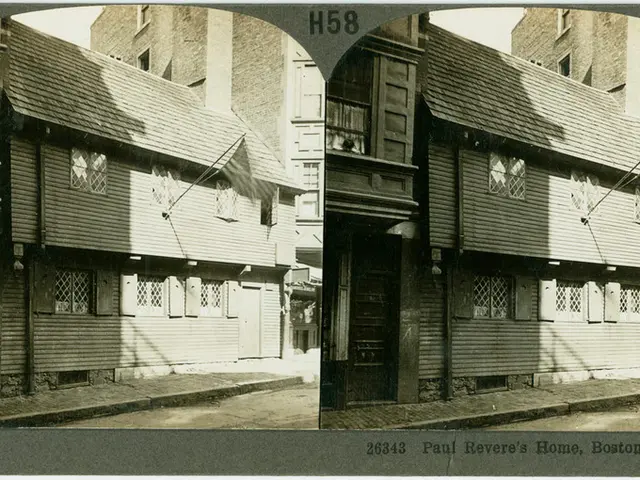StudyHours Recommendation for IB: A Practical Guide, Breaking Down Study Time by Subject and Academic Level
Effective Time Management and Study Strategies for IB Students
The International Baccalaureate (IB) Diploma Programme is a challenging curriculum that requires not only academic rigor but also effective time management and smart studying strategies. Here are some tips tailored to different subject areas to help IB students achieve their goals without constant stress.
Math:
- Use focused study sessions, such as the Pomodoro Technique, to maintain concentration during problem-solving and formula memorization.
- Employ visual aids like graphs, mind maps, and calculators efficiently to grasp complex concepts faster.
- Join study groups for collaborative problem-solving and peer feedback, which reinforce understanding.
- Practice pacing during exams by timing yourself on past papers to avoid time traps.
Sciences:
- Break down large projects and revision topics into smaller, manageable parts for consistent progress and less overwhelm.
- Integrate active recall and spaced repetition to memorize scientific terms, processes, and experiment details.
- Use diagrams, flowcharts, and models to visualize processes and connections between concepts, enhancing comprehension.
- Prioritize tackling challenging topics during your peak productivity hours for more efficient learning.
Humanities:
- Develop strong note-taking and summarization skills to distill complex readings and arguments.
- Schedule specific time blocks for essay planning, drafting, and reviewing to avoid last-minute rushes.
- Practice critical thinking by debating ideas with peers or writing reflections, which deepens understanding.
- Use timelines and thematic mind maps to connect historical events or literature themes.
Languages:
- Allocate regular short daily sessions for vocabulary and grammar practice to enhance retention through spaced repetition.
- Practice speaking and writing actively, incorporating feedback from teachers or peers.
- Use multimedia resources (videos, podcasts) to improve listening and contextual understanding.
- Set clear goals for reading comprehension, writing fluency, and oral skills, adjusting study plans accordingly.
Arts:
- Balance practical work and theory by scheduling studio time and revision of art history or theory separately.
- Break down large creative projects into stages with interim deadlines to ensure steady progress.
- Use reflective journaling to document ideas, feedback, and growth, which aids self-directed improvement.
- Integrate cross-disciplinary thinking by relating arts projects to global or cultural themes encouraged in IB.
Across all subjects, advanced time management techniques such as the Pomodoro Technique, time blocking, and identifying personal peak productivity hours boost efficiency and reduce burnout. Regular schedule reviews with teachers or parents help maintain a sustainable workload. Developing discipline in prioritizing quality over quantity of study and avoiding overcommitment to extracurriculars contribute to balanced academic success.
These strategies align with IB’s emphasis on pacing, perseverance, and interdisciplinary skills, preparing students for both exams and future academic challenges.
General Tips:
- Small wins, such as finishing an EE outline or solving a tough math set, should be celebrated.
- For Languages (Language A & B), it is recommended to alternate between grammar, vocabulary, and writing/speaking practice.
- A planner should be used to track workload fluctuations and prioritize each week.
- When feeling overwhelmed, it is recommended to cut back on study hours and re-balance personal wellbeing.
- Around 10-12 hours of weekly study may help pass the IB, but 16-22 hours ensures more stability and confidence in results.
- Time management for CAS and extracurriculars can be achieved by using a planner and batching similar tasks.
- Aiming for 7-8 hours of sleep nightly supports the brain’s processing of learning during sleep.
- During exam season, revision time across all subjects should be increased.
- Internal Assessment deadlines for subjects with due IAs require an increase in study hours.
- If a student takes 3 HLs and 3 SLs, this adds up to around 16-22 hours of weekly study time outside of school, roughly 2-3 hours per day, with lighter or catch-up sessions on weekends.
Cramming on weekends is not effective for the IB as it causes stress and weak retention. One rest day should be included each week with no study guilt. For Humanities (History, Econ, Geo), time should be spent reading case studies, preparing essays, and writing structured responses. A recommended weekly study breakdown for IB students is as follows: SL Subjects - 2-3 hours per week, per subject; HL Subjects - 3-5 hours per week, per subject; TOK/EE/CAS - 1-2 hours total per week for ongoing progress. If falling behind on a subject, catch-up sessions should be prioritized for that subject the following week, and help or guidance from the teacher should be sought. Monthly focused time should be blocked out for TOK/EE milestones. For Sciences (Bio, Chem, Physics), content review and IA work is suggested, using diagrams, flashcards, and online simulations. Study sessions should be broken into 25-30 minute chunks (Pomodoro method). It is not necessary to study every subject every day, but rotating subjects so they are covered at least twice per week is recommended.
Using efficient study methods like the Pomodoro Technique can aid in personal growth and better learning, especially during flashcard reviews for education-and-self-development purposes. Breaking down large projects into smaller parts, such as creating flashcards, can help manage workload and optimize learning throughout the IB Diploma Programme.




